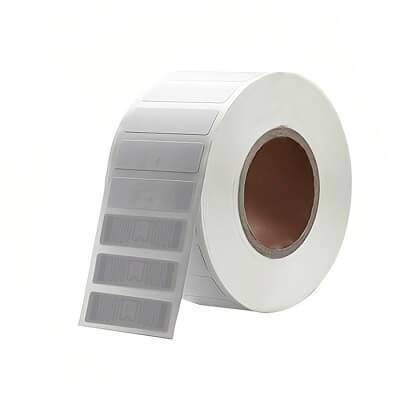Most Popular
The Utilization of UHF RFID Labels in Pharmaceutical and Medical Device Traceability
In the fields of pharmaceuticals and medical devices, ensuring safety, accuracy, and traceability is of utmost importance. With the advancements ... ...



The Utilization of UHF RFID Labels in Pharmaceutical and Medical Device Traceability
Rated: 



 , 0 Comments
, 0 Comments
Total hits: 231
Posted on: 08/16/23

In the fields of pharmaceuticals and medical devices, ensuring safety, accuracy, and traceability is of utmost importance. With the advancements in technology, Ultra-High Frequency Radio-Frequency Identification (UHF RFID) labels have emerged as a crucial tool for enhancing traceability and quality control. This article explores the multifaceted applications of UHF RFID labels in the pharmaceutical and medical device industries.
Enhancing Traceability in Pharmaceuticals and Medical Devices
UHF/RAIN RFID labels employ radio waves to transmit data between RFID tags and readers, allowing for seamless tracking and identification of items. These labels consist of an RFID chip and an antenna, which work together to transmit information wirelessly. While commonly associated with supply chain management, UHF RFID labels are finding innovative applications in pharmaceutical and medical device traceability.
Applications in Pharmaceutical and Medical Device Traceability
Product Authentication: UHF RFID labels are used to authenticate pharmaceutical products and medical devices, ensuring their legitimacy and origin. Patients and healthcare professionals can verify the authenticity of a product by scanning its RFID label, reducing the risk of counterfeit or substandard products.
Inventory Management: In pharmaceutical distribution centers and hospitals, UHF RFID labels play a vital role in inventory management. By tagging each item, from medications to surgical instruments, the entire inventory can be monitored in real-time, minimizing errors and expediting restocking processes.
Expiration Date Tracking: UHF RFID labels allow for accurate monitoring of expiration dates on pharmaceutical products and medical devices. This prevents the use of expired items, contributing to patient safety and regulatory compliance.
Patient Safety: In hospitals, UHF RFID labels can be affixed to patient wristbands and medical charts. This enables accurate patient identification, preventing medication errors and enhancing patient safety.
Benefits of UHF RFID Labels in Traceability
Accuracy: UHF RFID labels provide high accuracy in tracking and identification, reducing the risk of errors associated with manual data entry.
Efficiency: The automation enabled by UHF RFID labels streamlines inventory management, expiration tracking, and patient identification processes, saving time and resources.
Regulatory Compliance: UHF RFID labels help pharmaceutical and medical device companies comply with stringent regulations and quality standards by ensuring accurate traceability and authenticity.
Patient Trust: The use of UHF RFID labels contributes to patient trust by ensuring that they receive genuine and safe products, fostering confidence in the healthcare system.
The integration of UHF RFID labels into the pharmaceutical and medical device industries has significantly enhanced traceability, authenticity, and patient safety. By leveraging these labels, organizations can optimize inventory management, prevent counterfeit products, and ensure regulatory compliance. As technology continues to advance, UHF RFID labels are poised to play a pivotal role in shaping the future of traceability and quality control in these critical industries, ultimately safeguarding patient well-being and public health.
Comments
There are still no comments posted ...
Rate and post your comment